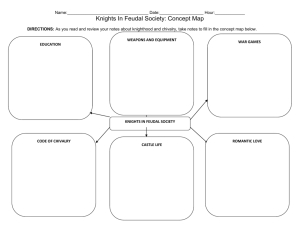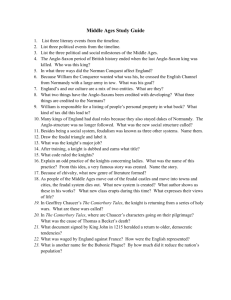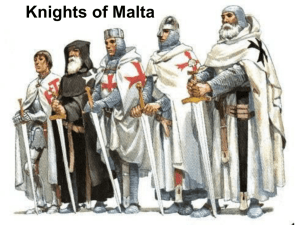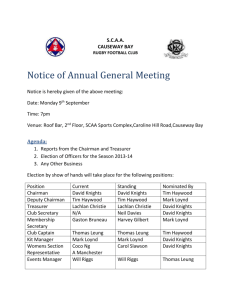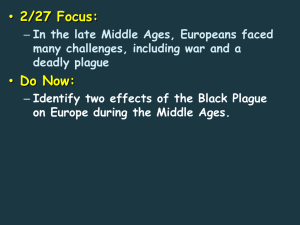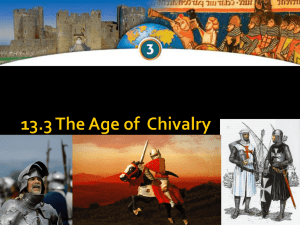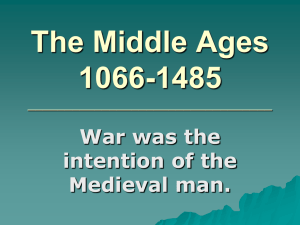Middle Ages: Knighthood Connie Fang Period 3 2.14.13 When
advertisement
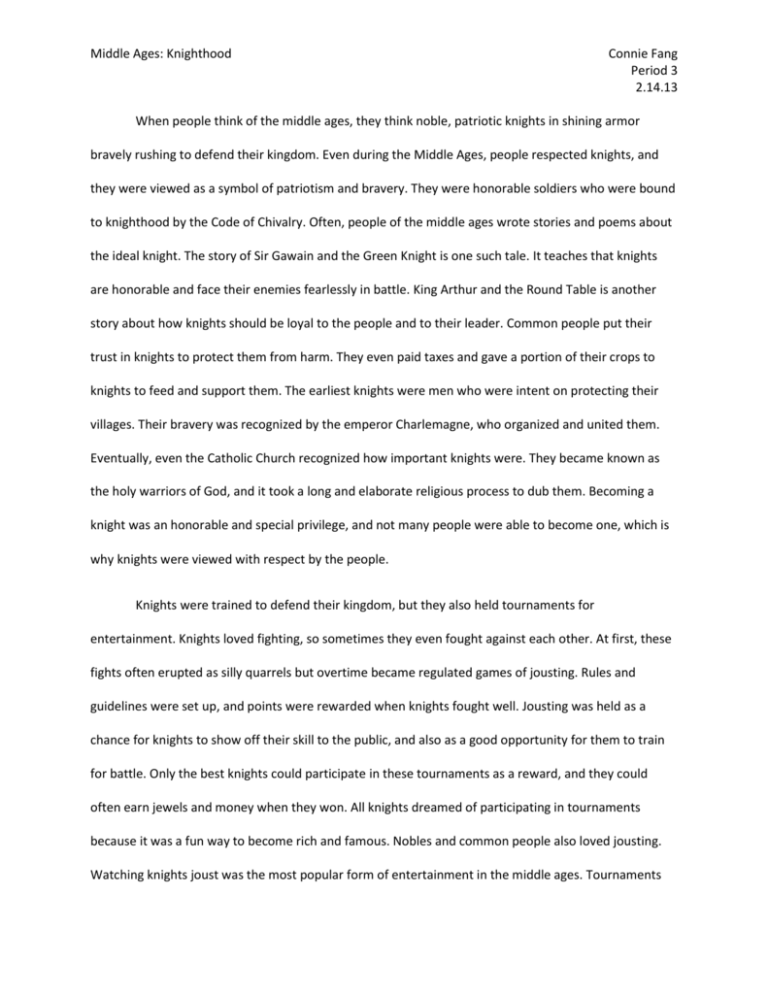
Middle Ages: Knighthood Connie Fang Period 3 2.14.13 When people think of the middle ages, they think noble, patriotic knights in shining armor bravely rushing to defend their kingdom. Even during the Middle Ages, people respected knights, and they were viewed as a symbol of patriotism and bravery. They were honorable soldiers who were bound to knighthood by the Code of Chivalry. Often, people of the middle ages wrote stories and poems about the ideal knight. The story of Sir Gawain and the Green Knight is one such tale. It teaches that knights are honorable and face their enemies fearlessly in battle. King Arthur and the Round Table is another story about how knights should be loyal to the people and to their leader. Common people put their trust in knights to protect them from harm. They even paid taxes and gave a portion of their crops to knights to feed and support them. The earliest knights were men who were intent on protecting their villages. Their bravery was recognized by the emperor Charlemagne, who organized and united them. Eventually, even the Catholic Church recognized how important knights were. They became known as the holy warriors of God, and it took a long and elaborate religious process to dub them. Becoming a knight was an honorable and special privilege, and not many people were able to become one, which is why knights were viewed with respect by the people. Knights were trained to defend their kingdom, but they also held tournaments for entertainment. Knights loved fighting, so sometimes they even fought against each other. At first, these fights often erupted as silly quarrels but overtime became regulated games of jousting. Rules and guidelines were set up, and points were rewarded when knights fought well. Jousting was held as a chance for knights to show off their skill to the public, and also as a good opportunity for them to train for battle. Only the best knights could participate in these tournaments as a reward, and they could often earn jewels and money when they won. All knights dreamed of participating in tournaments because it was a fun way to become rich and famous. Nobles and common people also loved jousting. Watching knights joust was the most popular form of entertainment in the middle ages. Tournaments Middle Ages: Knighthood Connie Fang Period 3 2.14.13 were often held in festive times of peace. Because they were hosted by rich nobles, tournaments could last for days without and end and they were almost like parties, with upbeat music and delectable food. Hosting these tournaments was a symbol of class and status because they were a popular and exciting form of entertainment.
